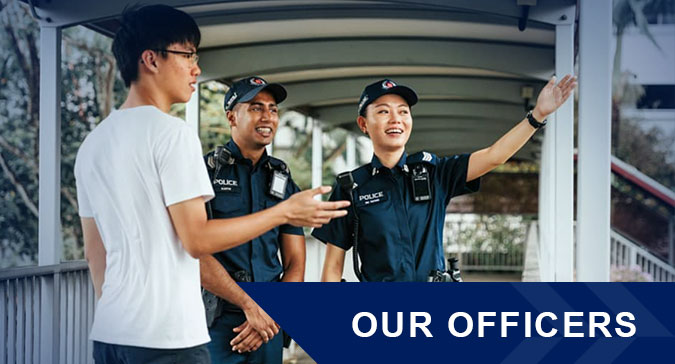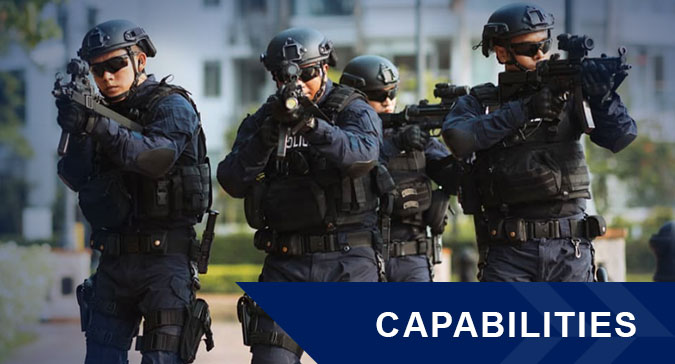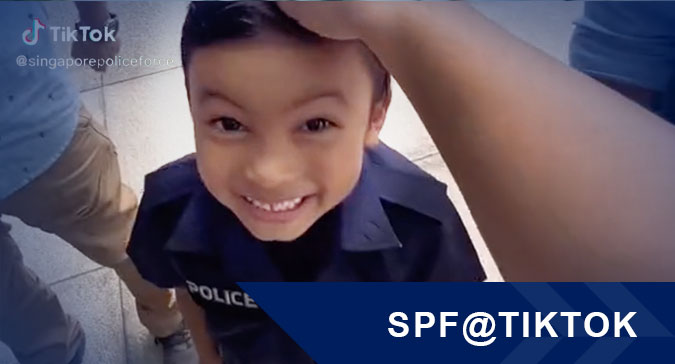A decade after Nepal's devastating earthquake that claimed nearly 9,000 lives, two SPF officers reflect on their life-changing mission with the SPF UN Peacekeeping Force and how it shaped their approach to crisis response.
By: Domnic Dass
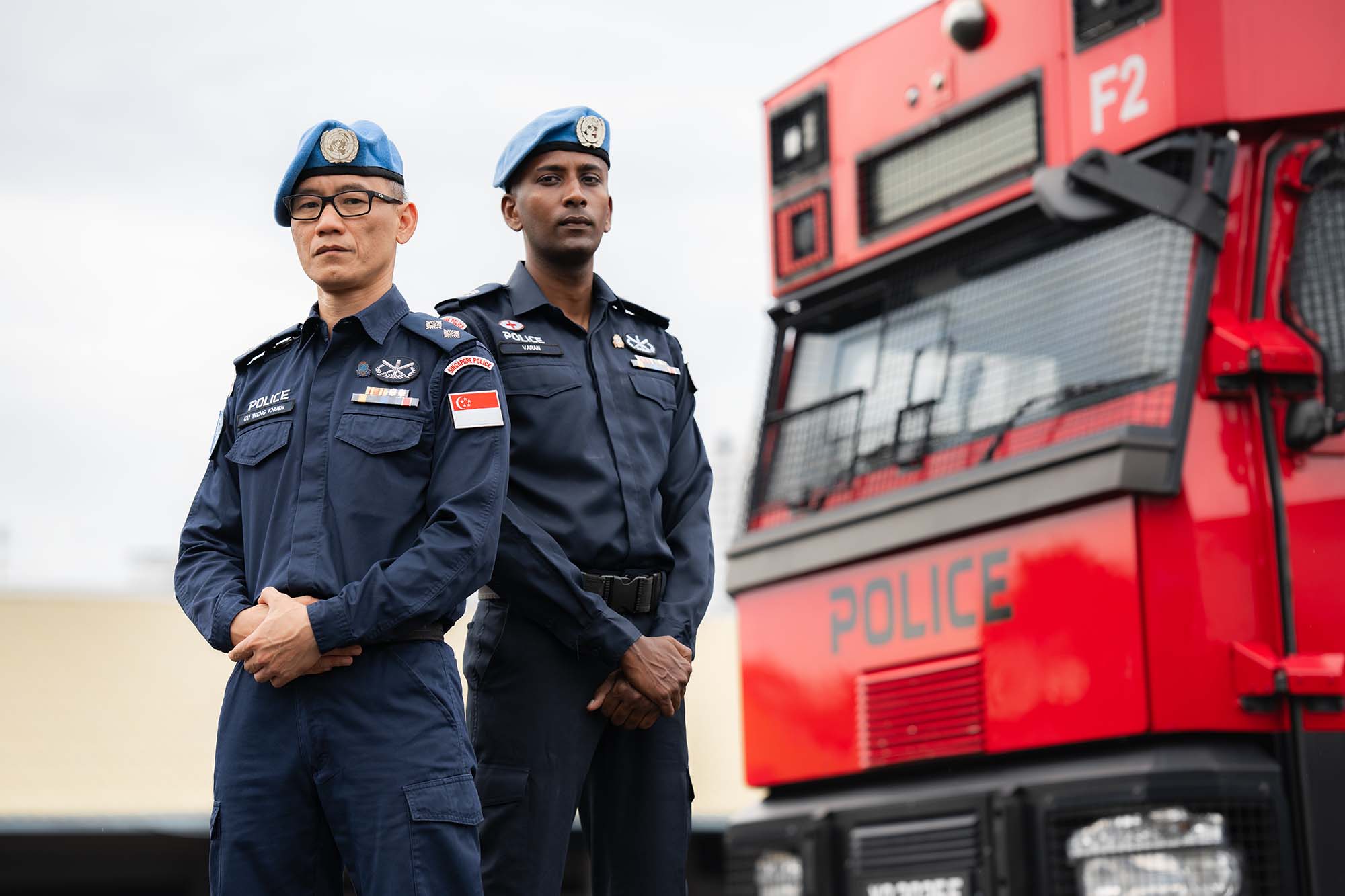
When a 7.8 magnitude earthquake struck near Kathmandu on 25 April 2015, Singapore swiftly responded.
Among the selected 66-member Singapore Police Force (SPF) contingent deployed to assist in disaster relief efforts were two Special Operations Command (SOC) officers – Inspector (Insp) Gu Weng Khuen and Station Inspector (SI) Knagesvaran S/O Thrunavakarasu. Deployed from 3 to 9 May 2015, their first overseas mission would go on to profoundly shape both their careers and their understanding of international humanitarian response.
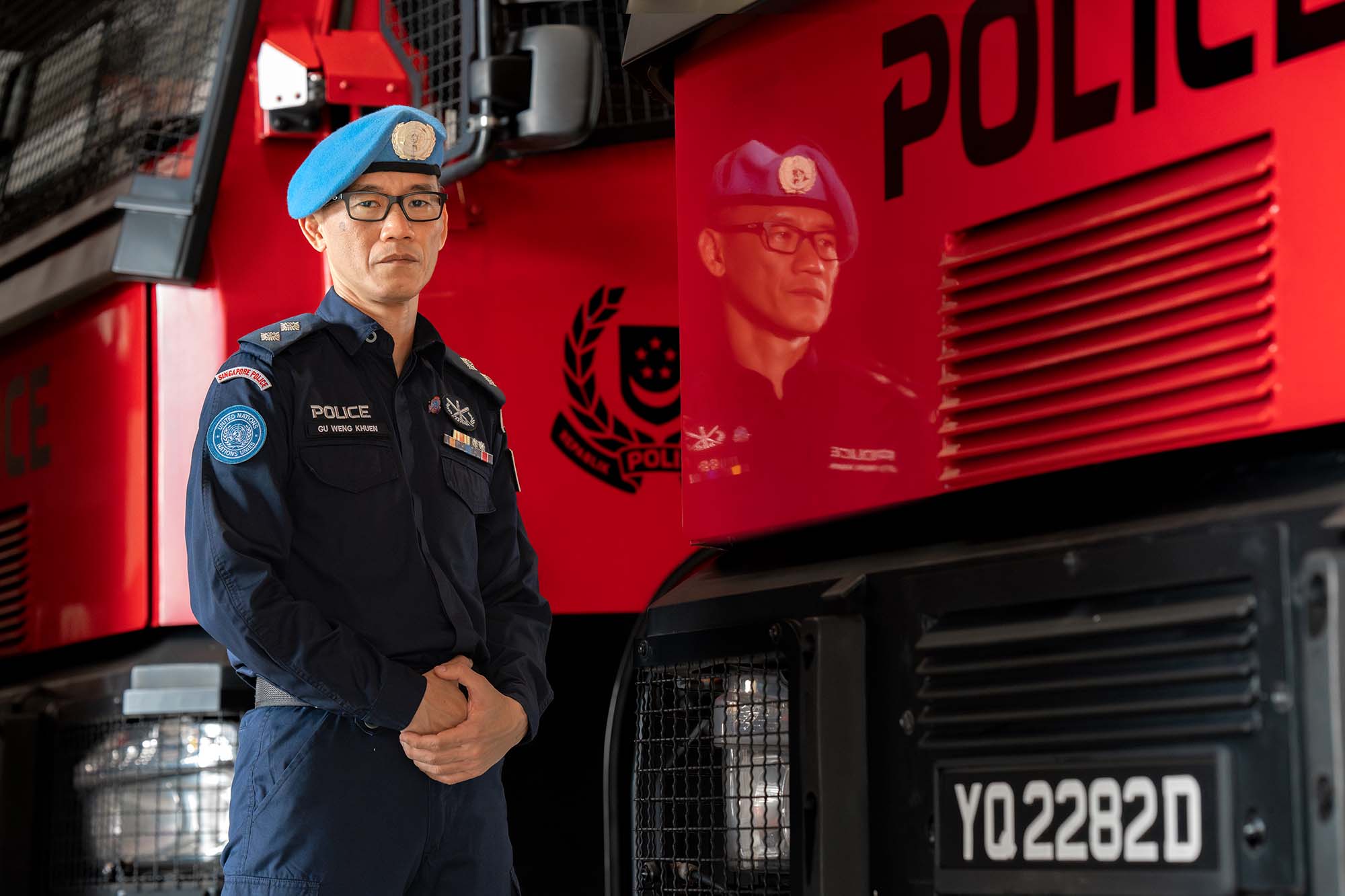
From Singapore’s Streets to Nepal’s Mountains
Insp Gu joined the SOC as a Full-time Police National Service (PNSF) officer in 1999 before becoming a regular officer in November 2000. He served as a Trooper in the SOC’s Police Tactical Unit (PTU) and is currently a Column Leader.
“I volunteered to join the SPF United Nations Peacekeeping Force (UNPKF) in 2012 because I saw it as a chance to serve during international crises and represent both the SPF and Singapore on the international stage,” explains Insp Gu. “The selection process was very demanding, with thorough evaluations of our physical fitness, leadership qualities and mental resilience, but I managed to pull through.”
The rigorous selection proved valuable for what awaited in Nepal. “When I first arrived, the reality of the situation hit me immediately as we started our journey from Kathmandu to the base camp,” Insp Gu recalls. “The city appeared calm, but as we ventured further into the rural areas, we saw the devastating impact – buildings collapsed, roads cracked and the once-bustling landscape now full of debris.”
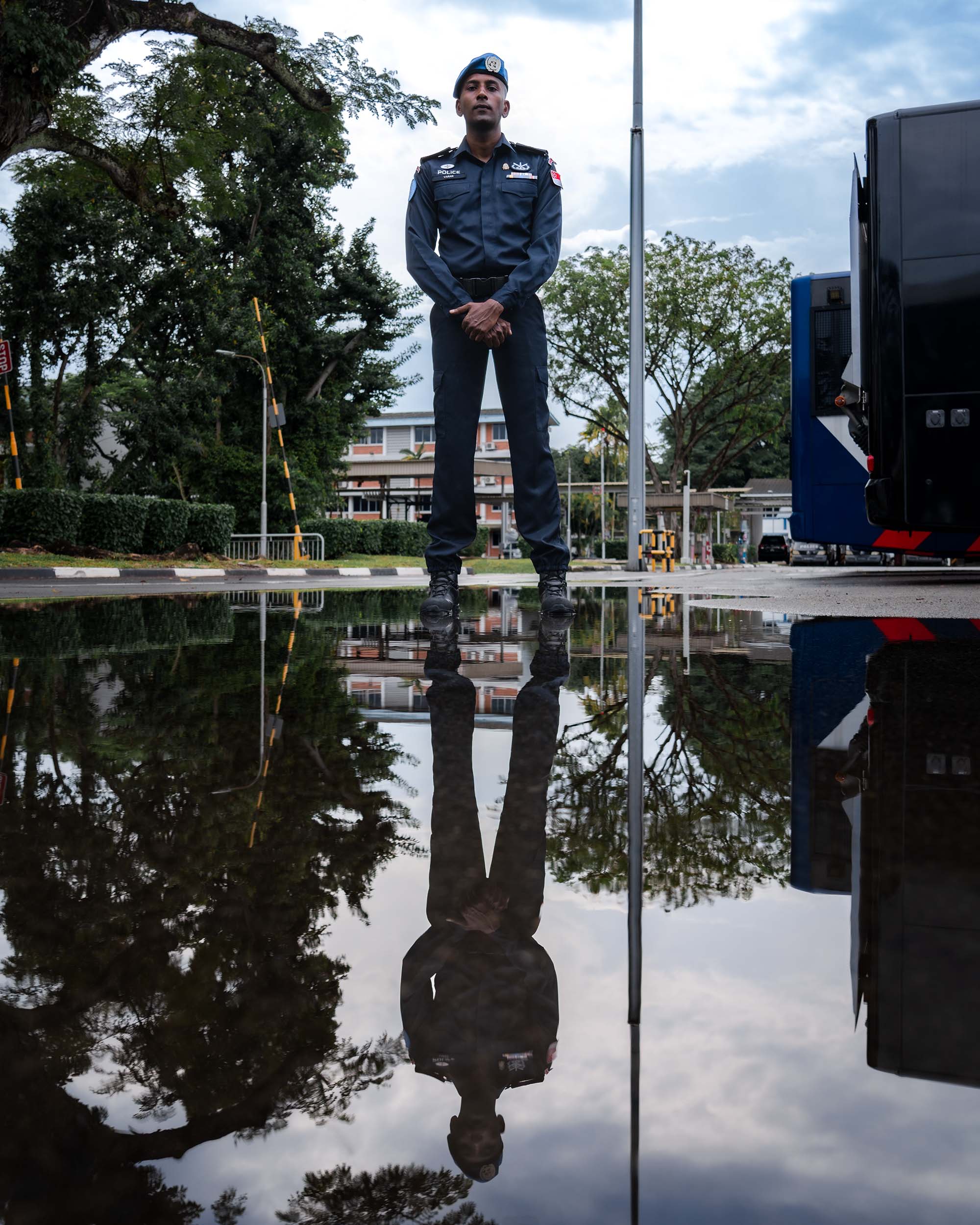
SI Knagesvaran also began his policing journey as a trooper with SOC’s PTU in 2007 as a PNSF officer, before returning as a regular officer in 2009. He has always sought to make a meaningful impact beyond his policing duties. As a Senior Trainer at SOC’s Tactical Training School, he was experienced in preparing officers for high-risk situations, but joining the UNPKF offered him the opportunity to apply these skills in real-world humanitarian crises.
When SI Knagesvaran arrived in Nepal, he was similarly shaken by the widespread destruction. “It broke my heart to watch the local news coverage of the aftermath of the disaster,” he recalls. “The images of families searching through the rubble and the overwhelming devastation – the sense of loss and helplessness was palpable.”
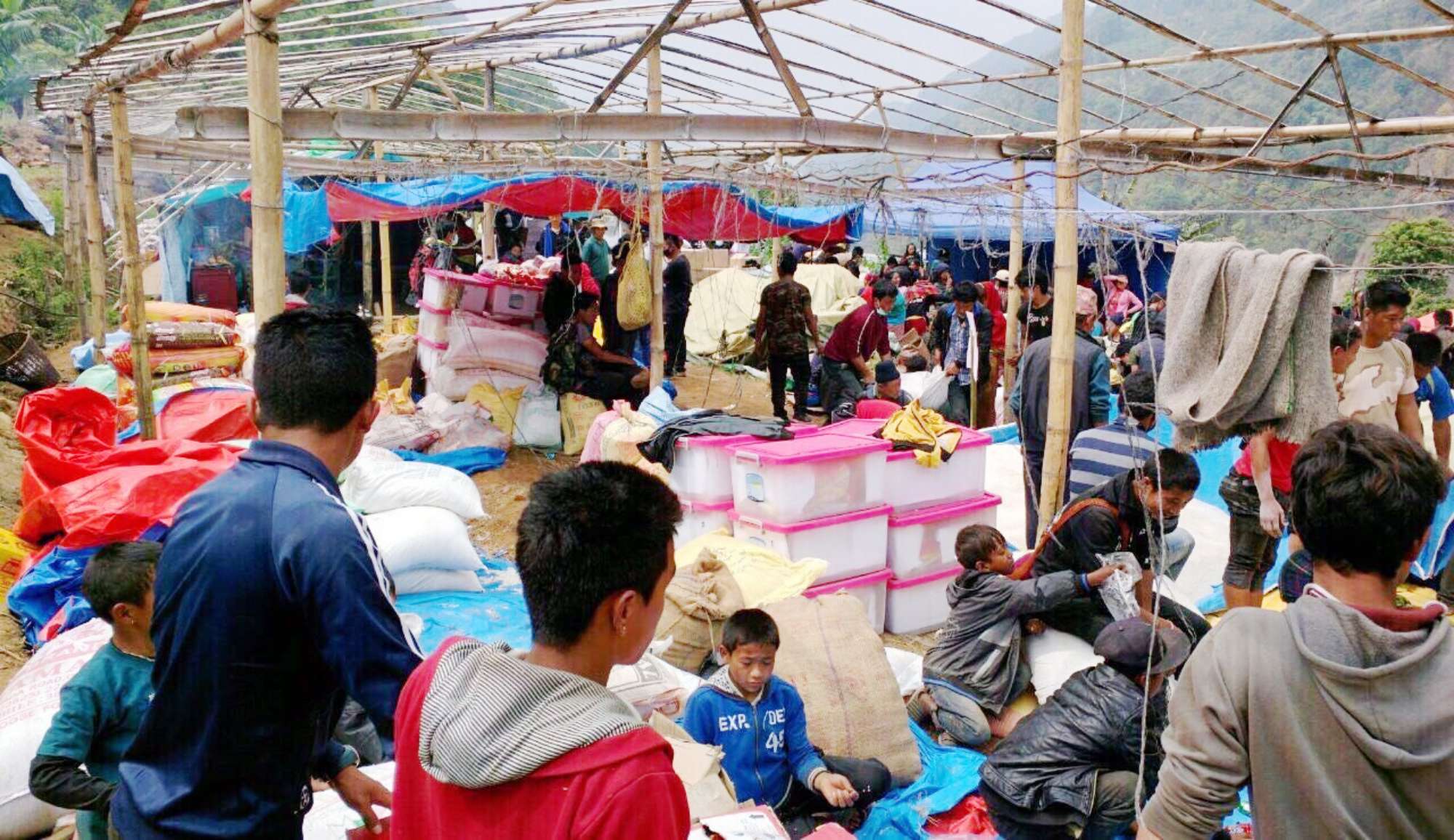
When Training Meets Reality: The Test of Adaptation
Upon arrival, the SPF UNPKF officers partnered with the Gurkha Contingent officers to coordinate relief efforts, from helping them locate displaced persons to delivering critical supplies in displaced areas. The terrain posed significant challenges – unstable ground conditions and earthquake-blocked pathways made accessing rural areas particularly difficult.
The disaster zone required both officers to adapt their SOC training significantly. For Insp Gu, his experience as a PTU column leader proved vital, drawing on his expertise in coordinating multiple forces during major incidents and managing complex ground operations.
“The high-pressure nature of PTU operations equipped me with skills needed to navigate Nepal’s challenging terrain,” Insp Gu explains. “Making rapid decisions, ensuring the team’s safety and maintaining operational discipline were critical throughout the mission.”
SI Knagesvaran’s role shifted from direct medical intervention to logistical support during his deployment. “Many sites were inaccessible,” he says. “We focused on ensuring resources were effectively managed and deployed where they were most needed.” The team coordinated the distribution of critical supplies to affected areas, including daily necessities such as toiletries, non-perishable food, blankets and water.
The constantly evolving situation tested their resilience. From last-minute operation cancellations to transportation challenges caused by aftershocks, the team had to adjust their plans regularly in response to new developments. “Every moment felt critical because we never knew what would happen next,” SI Knagesvaran shares.
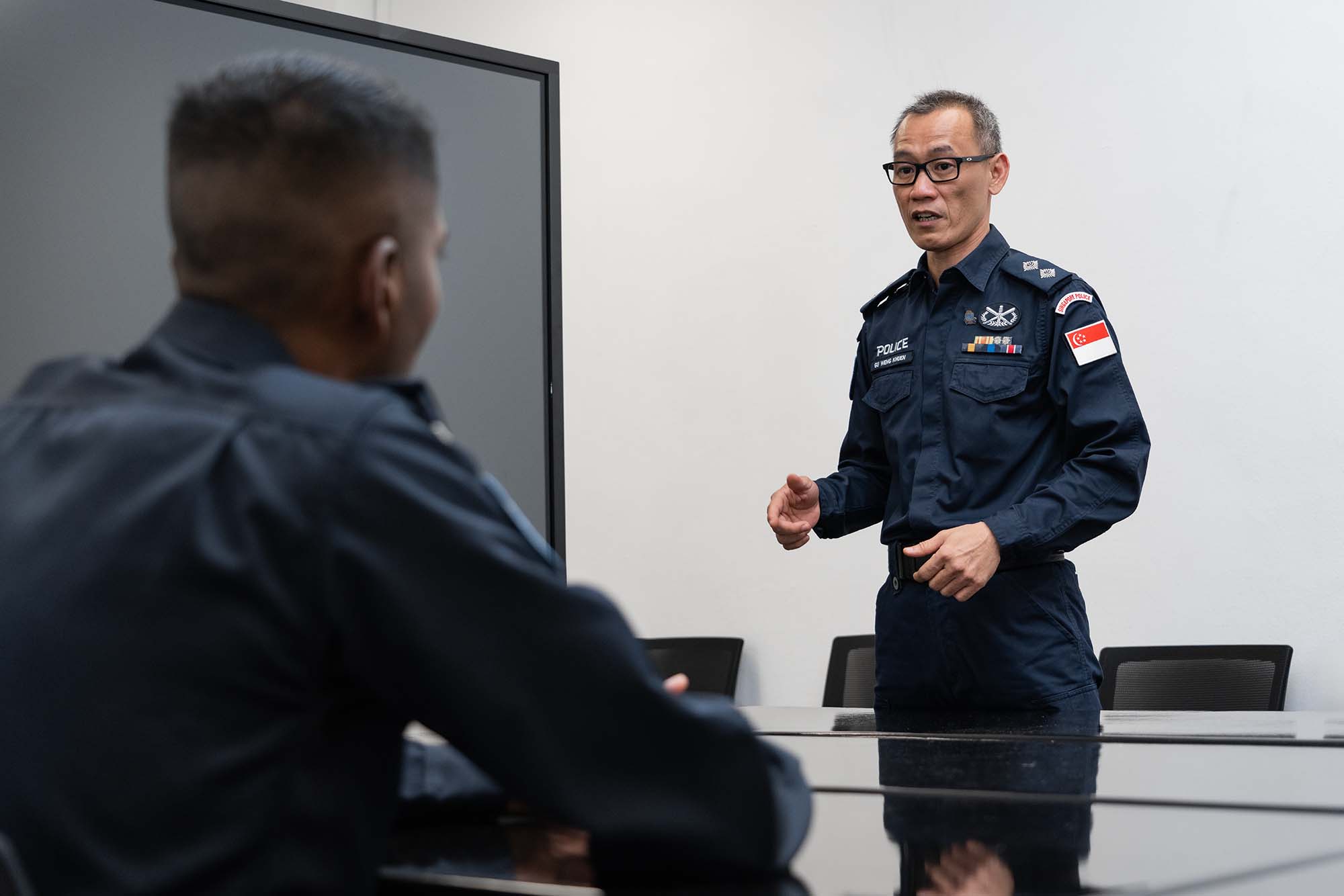
The Invisible Battlefield: Mental Fortitude in Crisis
The mission tested not just physical endurance but mental fortitude. Insp Gu recalls a gruelling operation to support a recce team in a remote area. The journey involved an eight-hour drive on rough mountain roads, followed by hours of trekking.
An aftershock had severely damaged the roads in the area, rendering them impassable and forcing the mission’s cancellation. Though exhausted from the preparation, the team emerged with valuable lessons from the experience. “It was an emotional rollercoaster, but it reinforced the importance of perseverance, even when things didn’t go according to plan,” reflects Insp Gu.
Maintaining morale was challenging but the team found purpose in their mission. “Every person we helped reinforced the importance of what we were doing,” says Insp Gu.
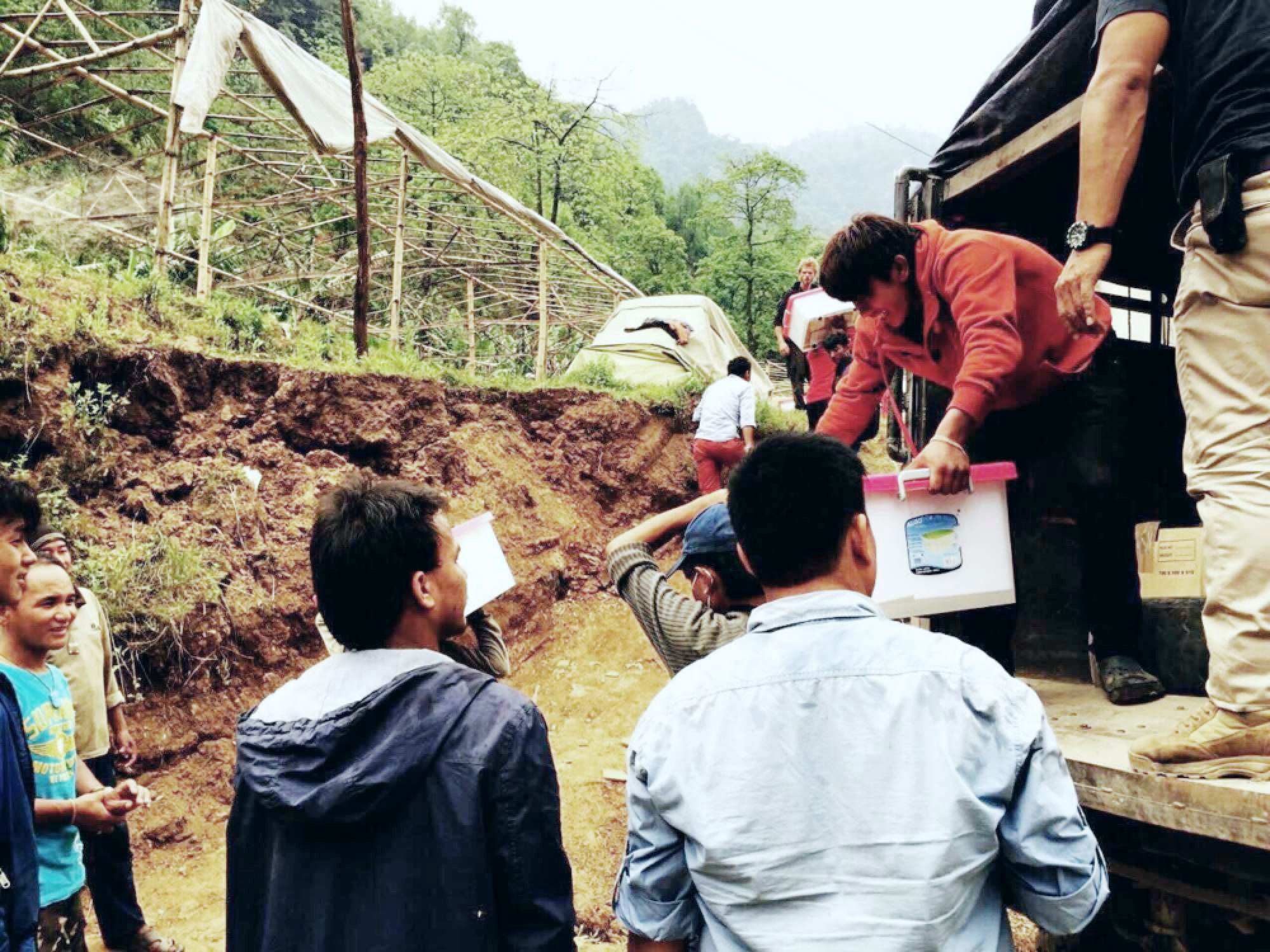
Finding Hope Amidst Devastation
Despite the heartbreak, both officers found moments of hope. “Humanitarian aid poured in from all over the world and it was a powerful reminder of how humanity can unite in times of tragedy,” SI Knagesvaran shares.
For Insp Gu, hope came from witnessing his team’s response to danger. “On our last day, an aftershock shook our hotel. What impressed me was how the team came together immediately – no panic, just calm coordination.”
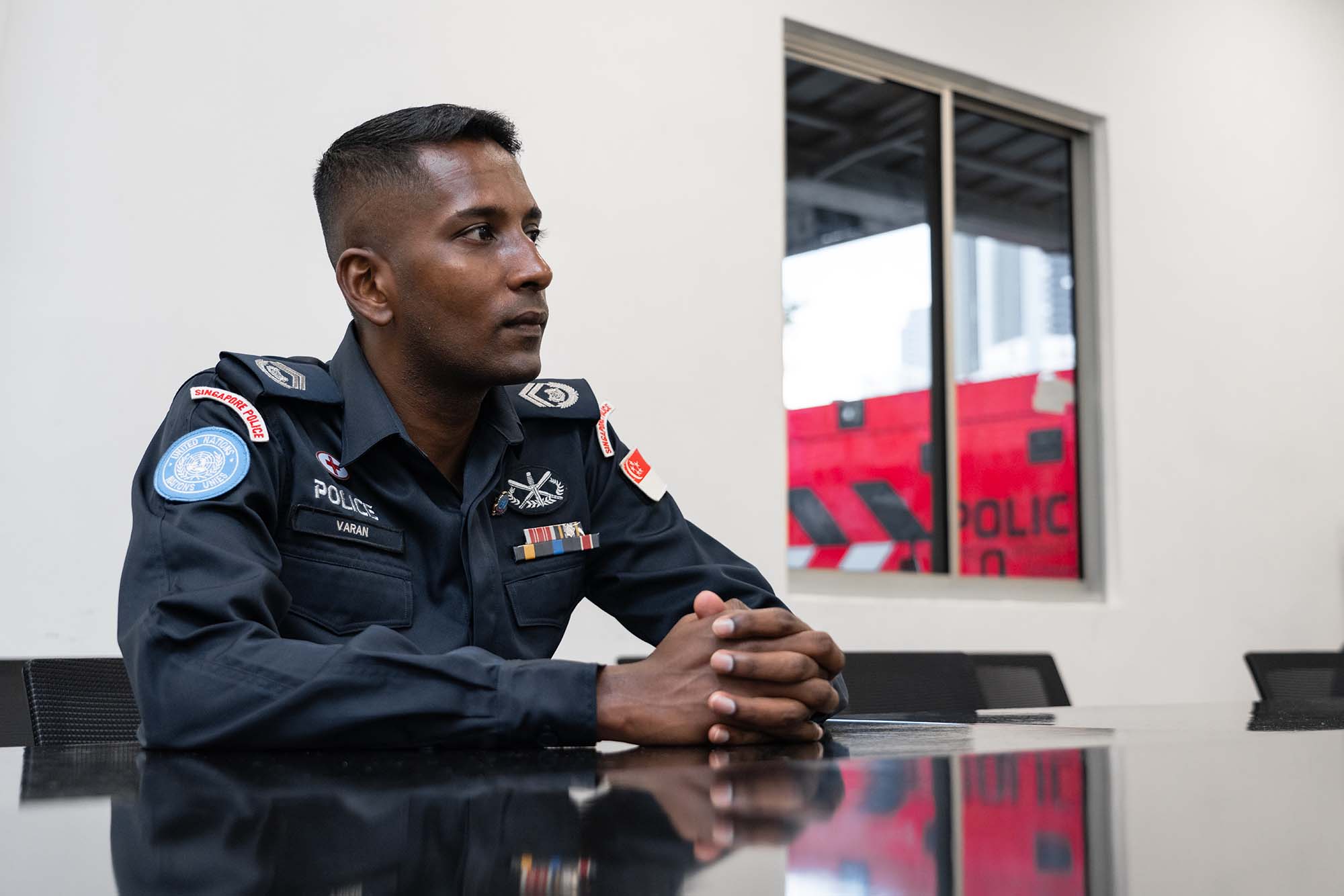
Lasting Impact on Training and Readiness
The Nepal mission transformed how both officers approach their roles today. For SI Knagesvaran, the experience shaped how he trains officers in Tactical Medicine. "I focus on developing officers' adaptability, critical thinking and mental resilience through realistic, scenario-based training that incorporates teamwork, casualty management and operational effectiveness under challenging conditions."
For Insp Gu, the mission reinforced the importance of adaptable leadership in crisis situations. Drawing from his Nepal experience, he now emphasises flexible planning and quick decision-making in his role as a Column Leader. "The mission taught us that no matter how well you plan, you must be prepared to adapt. I incorporate these lessons into our PTU training, ensuring our officers are ready for any scenario."
Looking back ten years later, both officers express confidence in the SPF's readiness. "The professionalism, training and dedication shown during our deployment proved that we bring reliability and commitment to every mission," reflects SI Knagesvaran.
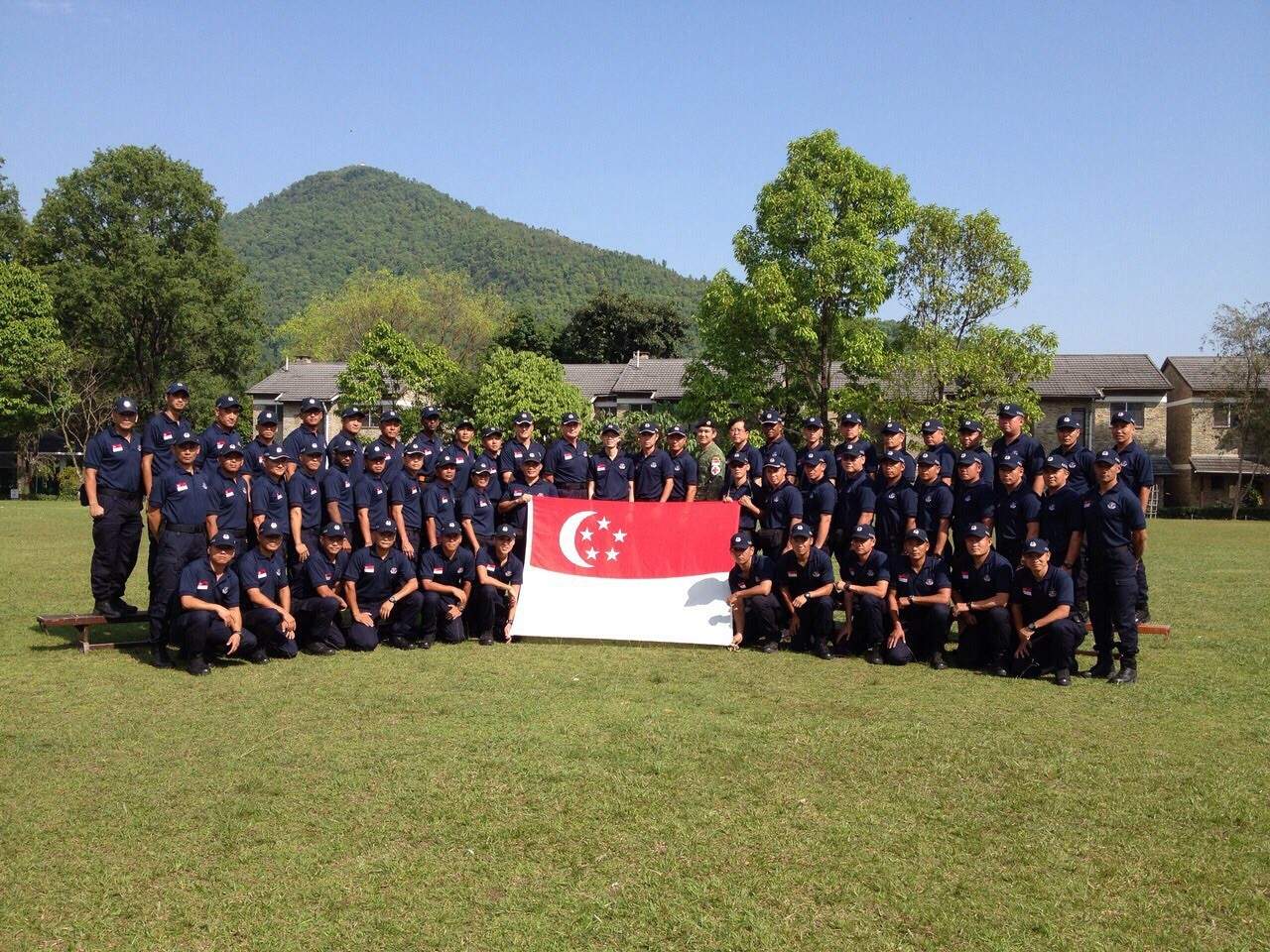
Singapore’s Global Commitment
The SPF has been contributing to international peacekeeping efforts since 1989. Established in 1998, the SPF UNPKF has deployed specially trained officers to peacekeeping and humanitarian missions across regions including Aceh, Cambodia, Iraq, Jordan, Timor-Leste and Laos. The Nepal deployment represented one of Singapore’s significant contributions to international disaster relief.
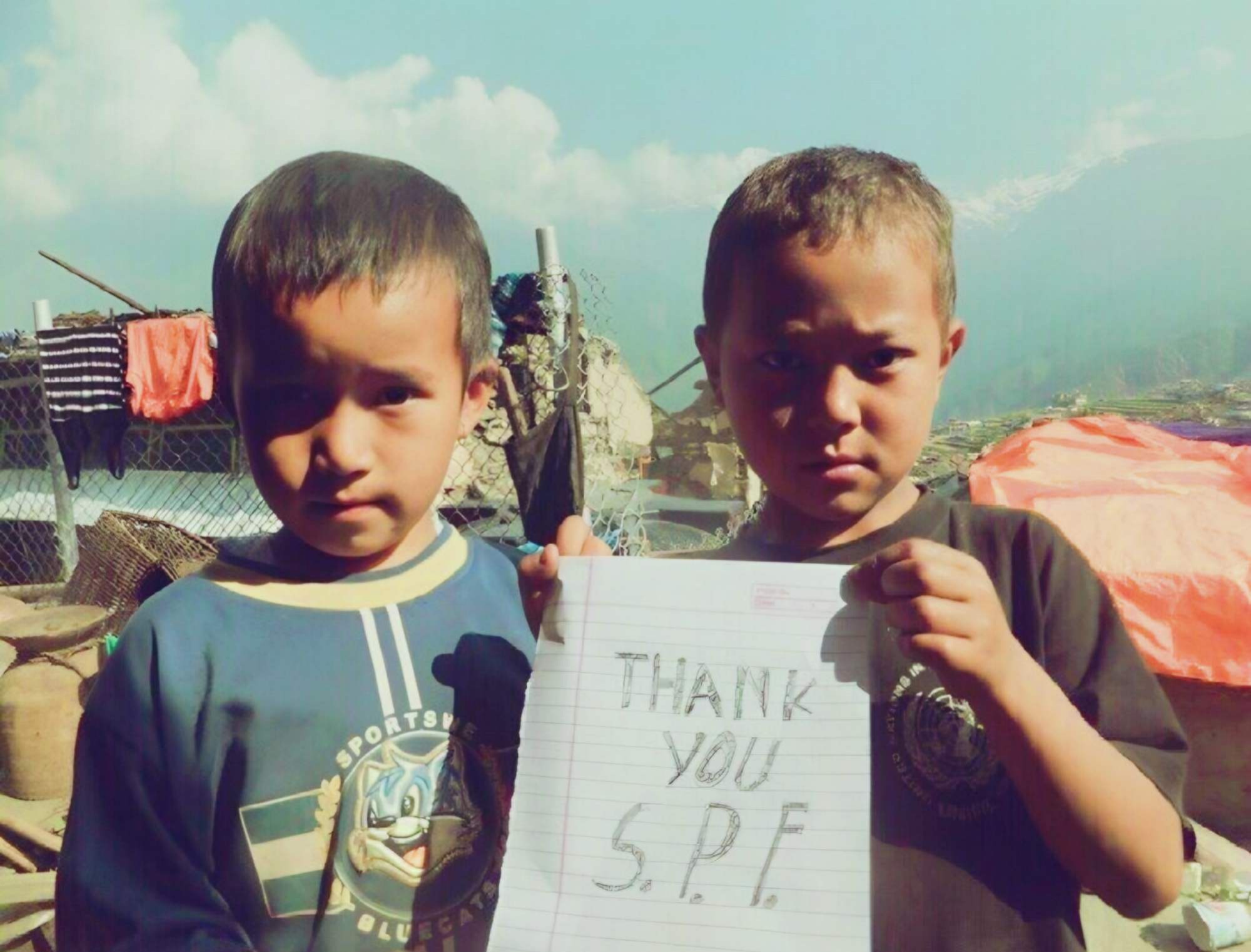
“Singapore has built a strong reputation as a trustworthy and effective partner in global peacekeeping efforts,” concludes Insp Gu. “SPF’s readiness to respond to such crises is something all Singaporeans can be proud of.”


